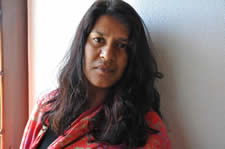People and the Sea VII
Conference theme: Maritime Futures
“Maritime Futures”, the central theme of the 7th MARE People and the Sea conference, addresses the opportunities and constraints for the development of maritime governance, knowledge production maritime communities and maritime regions.
Globally marine and fisheries systems are under stress. This not only affects the natural environment and resources, but also increases the vulnerability of people and communities who depend on these systems. The future for users of coastal and maritime resources is thus uncertain, but carefully targeted governance interventions may yet generate good options for improving the health of maritime ecosystems and enhancing the wellbeing of coastal and maritime resource users. Effective governance, however, requires high quality applied social (and natural) science that can increase contextual understanding, particularly with regard to the critical drivers of change and the institutional mechanisms for recognizing and dealing with problems and creating opportunities at various scales.
Maritime knowledge production is no longer the domain of biologists and economists alone, social scientists are increasingly invited to co-produce maritime knowledge. More broadly, not only scientists play a role but increasingly society, maritime businesses and NGOs create new frontiers in knowledge production. Collaborative knowledge production is needed for the development of legitimate and sustainable fisheries and maritime policies.
An emerging issue are physical changes and political and economic developments around the Arctic and on the high seas. These are generating new opportunities and t new spheres of authority but also new relations of accountability to deal with a diversity of problems resulting fromgrowing maritime activities and conflicts.
As reflected in the conference themes, the aim of the 7th MARE conference is to explore these new frontiers at sea and in coastal areas.
Conference themes:
- Knowledge Production
This theme brings together the different approaches and tools that are currently used in coastal and marine resource management that develop (or block) the creation of an integrated knowledge base for management. It seeks to contrast and compare their use across different contexts and disciplinary perspectives and to illuminate the roles of knowledge negotiation and the creation of science-policy boundary objects. We particularly invite scientists to reflect upon integrative approaches to knowledge production such as working together with society (sectors, NGO’s) to produce knowledge and develop it for use in decision making. This may involve scientists working together in an integrative multidisciplinary or transdisciplinary ways. Research and critical thinking on the role of social scientists and social science in the production of a management knowledge base would also be very welcome.
- Maritime Governance
Negotiating policies for maritime resource use. This theme focuses on new frontiers of maritime governance giving particular attention to aspects of negotiation, consensus building, and legitimacy in integrated maritime policies for regional seas and coastal areas. We are interested in how different policies for regional seas and coastal zones are developed, whose voices are heard, aspects of power, procedural justice, examples of good and bad practices, and consequences of policy contestation. We are also interested in articles which discuss management approaches, such as Marine Spatial Planning, Coastal Zone Management, ecosystem-based management, wealth-based and rights-based approaches, and more specific management tools such as marine parks, ITQs, and quota regimes.
- Maritime communities
This theme continues the long standing attention of the MARE conference series to maritime anthropology and the cultural meanings that people associate with the sea and the coastal zone. Papers in this theme may relate to occupational specializations, such as fishing, coastal tourism, aquaculture, or oil rig work. They may also branch into cultural or political ecology, history, film or literary analysis. Documentaries could be included in the programme. As the journal MAST will be celebrating its 25th anniversary at the conference, we also welcome papers that might fit into a panel or panels organized broadly around the themes that MAST has covered over its publication history.
- Maritime Regions
This theme focuses on The Arctic and the High Seas or Deep Seas as maritime regions where new conflicts between maritime activities are taking place and new spheres of authority are being negotiated. These are frontiers where new activities, such as oil and gas production, mining and fisheries are being developed or intensified in a governance setting of institutional ambiguity. In this situation new accountability mechanisms and forms of legitimacy have to be developed. The focus will be on such topics as the institutional and juridical setting of the Arctic and the High Seas, the role of states, international organizations, new institutions, companies and NGOs, the regulation of maritime activities.
- Coastal shocks, disasters and recovery
This theme focuses on the reactions of coastal and maritime systems to shocks and how science, policy and coastal communities deal with sudden change. As change may have natural (tsunamis, climate change, etc.) or social (policy, demographic developments, etc.), origins, contributors might address topics such as oil spills, fishing bans, resource collapse, the global recession or natural disasters affecting the coastal zone. Enquiries might highlight policy processes, law, power equations, the role of government, or of civil society.
- Fisher wellbeing, human rights, and shifting vulnerabilities – challenges and opportunities.
This theme addresses the challenges of poverty alleviation and the securing of human rights in fisheries in the context of diminishing resources, changing access to resources, and fast-paced coastal development trends. How do these changes affect the current and future wellbeing of fishing dependent people, what are the implications for vulnerability, human rights and justice, and how can new knowledge on these aspects contribute to fair and sustainable policy options? This theme seeks to attract papers which address poverty in fisheries in north and south; human rights-based approaches in fisheries; aspects of social justice; and quality of life and wellbeing in fishing communities. We also encourage papers which have a gender focus, recognizing that change in fisheries can affect men and women differently, and can inspire a range of coping reactions and strategies.
MARE People and the Sea exhibition – call for short films, documentaries, and photography relating to people and the sea.
At the 2013 conference, we hope to exhibit a series of short films and photographs relating to people and the sea and the 7th MARE conference theme ‘maritime futures’. These will be displayed for the duration of the conference, and will be allocated a specific time slot for exhibitors to discuss their work with conference delegates.
Conference Programme
- Download the full Programme Book
- Download the Programme Overview
- Download the Panel Sessions Overview
Confirmed Keynote Speakers are:
Mr. Rolf Willmann, FAO (keynote will take place on Wednesday, 26th of June)
Dr. Moeniba Isaacs, University of Western Cape, South-Africa (keynote will take place at Thursday, 27th of June)
Dr. Kevin St Martin, Rutgers University, USA (keynote will take place at Friday, 28th of June)





